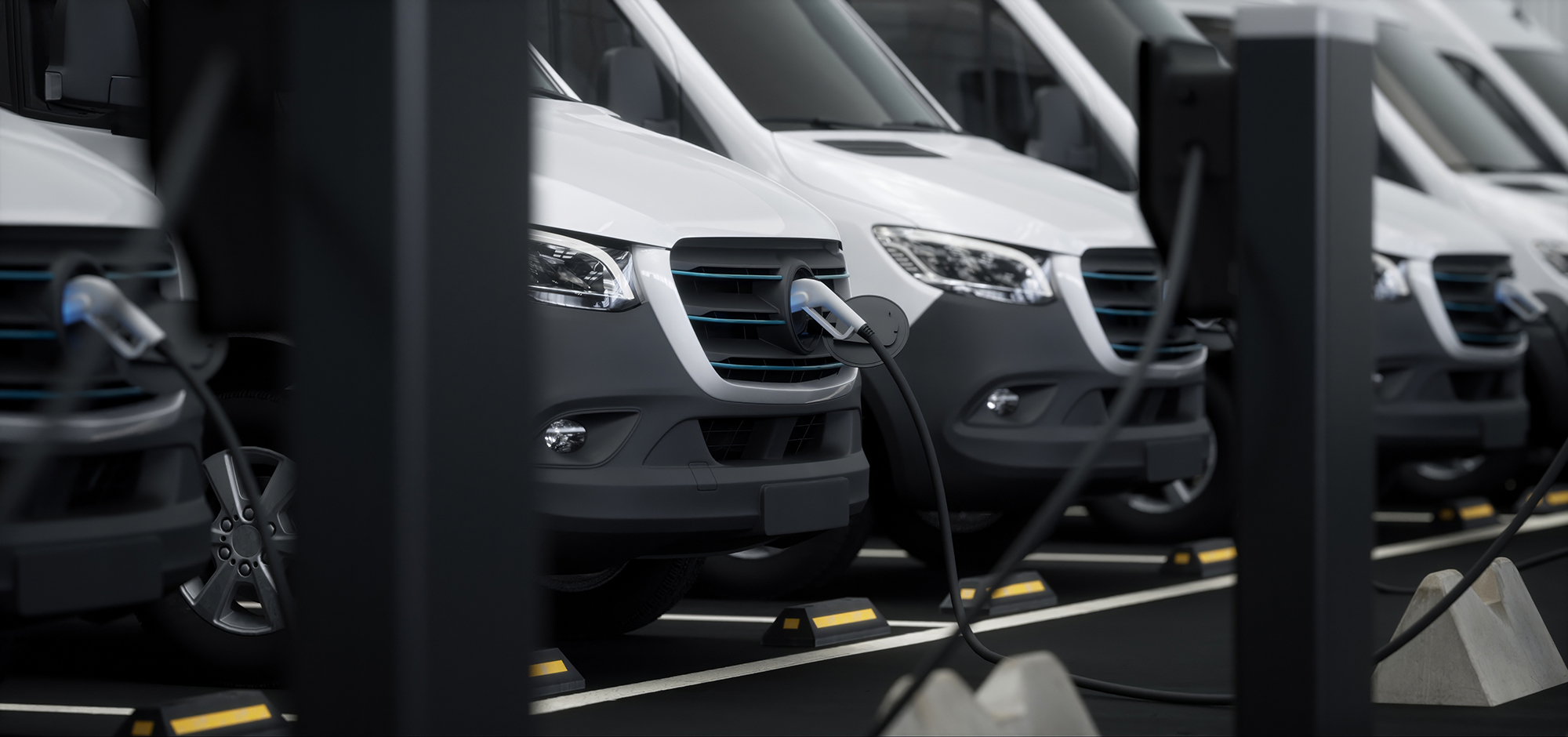Imagine running a fleet that costs less to maintain, shields you from fuel price spikes, and helps win new customers. That’s the reality businesses are finding with electric vehicle fleets.
The switch helps businesses competitive in a market where efficiency, reputation, and compliance all matter more than ever.
With the UK preparing to phase out petrol and diesel sales by 2030, companies that electrify now are putting themselves in a position of strength for future advantages.
Here are ten reasons why your business should consider switching to an EV fleet today.
Reasons for your business to switch to an EV fleet
1. Stay ahead of UK government deadlines
Regulation is tightening. The 2030 ban on new petrol and diesel cars is fast approaching. The 2035 requirement for zero-emission vehicles sets the long-term direction.
Businesses that act now can prepare early. Planning ahead avoids rushed decisions and ensures your fleet remains future-proof.
As Hugo Seymour, Head of Presales at Hitachi ZeroCarbon says “For leaders hesitant to move forwards, you only have a short amount of time (for electrification) and you need to start now, if you don’t take action now, it’s going to come a bite you later”.
2. Benefit from financing solutions
To address the significant shift in operations that a transition to EVs would take, innovative public-private financing models are emerging. Co-ownership arrangements between local authorities, operators and public companies are one such model, enabling shared risk and long-term value creation. These models can make electrification more financially viable by distributing upfront costs and sharing the benefits of battery residual value and operational efficiencies.
3. Lower running and maintenance costs
Electric vehicles are cheaper to maintain. They have fewer moving parts than internal combustion engine (ICE) vehicles, which reduces servicing bills.
Using Total Cost of Ownership (TCO) and Whole Life Cost tools, many fleet managers already see EVs outperform diesel equivalents over a vehicle’s lifetime.
4. Access grants and government funding
The government supports businesses switching fleets. Available schemes include:
- Workplace Charging Scheme (WCS) – helps with installing charging points at business premises.
- EV Infrastructure Grant for SMEs – covers installation for small and medium businesses.
- Electric Vehicle Homecharge Scheme (EVHS) – supports charging access for employees at home.
These reduce upfront costs and accelerate the transition.
5. Improve charging convenience for your fleet
Charging infrastructure is improving fast. Over 80,000 public chargers now operate across the UK, with numbers growing monthly. Zap-Map tracks these developments in real time.
Hitachi ZeroCarbon provides tailored fleet charging solutions, helping businesses install and manage workplace charging in line with operational needs. This ensures drivers can charge with confidence and keep vehicles on the road.
6. Match the right vehicles to your business needs
Fleet requirements vary. Battery electric vehicles (BEVs) suit most everyday journeys, while plug-in hybrids (PHEVs) or hybrids may work during transition periods. Larger businesses are also beginning to explore electric lorries and heavy-duty vehicles, supported by evolving infrastructure and specialist commercial EV fleet solutions.
7. Boost your corporate sustainability credentials
Sustainability commitments are now central to business reputation. Moving to an electric fleet cuts carbon emissions and helps meet net zero targets. Corporate Social Responsibility (CSR) reporting benefits too, demonstrating a reduced carbon footprint strengthens credibility with stakeholders, investors, and customers.
8. Real-time data intelligence
Electrification can bring about more accurate decision-making and strategic guidance. This is because electric vehicles act like mobile data hubs – they generate richer, more frequent and more actionable insights than internal combustion fleets. Every charging session, route and driver interaction generates more data. When this is applied across a fleet base, it can deliver measurable environmental and operational impact.
9. Battery life as a strategic asset
The condition of a fleet’s batteries is a critical determinant of its operational range and financial viability. Advanced battery management tools can provide deep insights into battery health, degradation patterns and performance under varying environmental concerns. Unlike basic dashboard indicators, these solutions aggregate data from similar assets across multiple operating conditions, empowering fleet managers to make informed decisions and enabling proactive maintenance.
10. Strengthen your brand and competitive edge
Adopting EVs early demonstrates leadership. Customers increasingly prefer working with sustainable businesses and supply chains often demand greener practices too. An electric fleet signals innovation, responsibility, and competitiveness in a changing marketplace.
Real-world examples of EV fleets in action
Lessons from early adopters
One standout example is First Bus, working in partnership with Hitachi ZeroCarbon to electrify and decarbonize its operations.
- First Bus has committed to operating a fully zero-emission bus fleet by 2035.
- Hitachi ZeroCarbon supports this by providing Battery Charging and Management Services (BCMS) across multiple depots. Over 400 buses currently operate under this service across seven depots including Leicester, Aberdeen, Bramley, Scotstoun, Norwich, Hoeford and York.
- One of the early flagship projects was at the Caledonia bus depot in Glasgow: transforming it into a major charging hub with the capacity for up to 300 electric buses. The project includes vehicle batteries, smart charging infrastructure, and systems to monitor battery health from a distance.
Start the transition today
Switching to an electric fleet is no longer a question of “if” but “when.” Businesses that act now gain financial savings, operational resilience, and reputational advantages.
The sooner your organisation begins, the sooner you benefit. Explore Hitachi ZeroCarbon solutions to see how your business can make the transition today.

